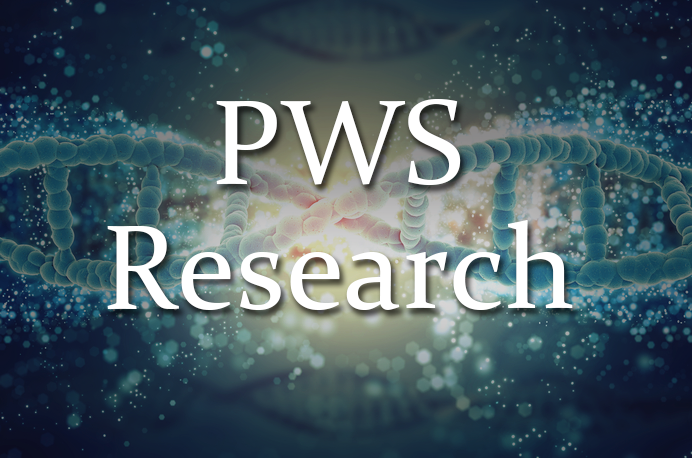Topics: Research
On Tuesday, June 17, key leaders and scientific staff members at the FDA took time out of their busy schedules to learn about the serious challenges of PWS, to hear about our loved ones’ unmet medical needs, and to discuss ways to work with the PWS c...
One of the exciting breakthroughs in PWS research in recent years has been the development of induced pluripotent stem cells or “iPSCs”. Although there is tremendous excitement among the scientific community about iPSCs, many parents, patients, and a...
Topics: Research
Dr. Marc Lalande is leading a team of researchers trying to unlock the key to improve the quality of life for children born with Prader-Willi Syndrome by growing stem cells from blood and skin samples in an effort to come up with breakthrough therapy...
Topics: Research
We all wish, hope and work for a ‘cure’ for PWS - new treatments for the hunger, a new therapy to improve behavior, interventions to make our child’s life healthier, happier and more independent. After years with very few new drugs and interventions ...
Topics: Research
Just a few short weeks ago, we shared with you the amazing story of Ariana Garagozzo, an aspiring PWS researcher and sister to a young man with PWS. We are pleased to announce that funding for the 2014 Young Investigators Internship Program is comple...
Topics: Research
It’s likely that improper development and/or function of neurons throughout different regions of the brain contributes to many of the characteristics of PWS, including hyperphagia, anxiety, OCD behaviors, sleep disturbances, and temper outbursts. How...
Topics: Research
A recent publication in Science raises a number of interesting questions regarding the potential for prenatal and perinatal (newborn) therapies in the prevention and treatment of autism spectrum disorder (ASD). This type of treatment would be a decad...
Topics: Research
Those with PWS often battle a variety of gastro-intestinal (GI) issues. Beyond general GI function and quality of life, there is a growing field of research exploring how GI composition and health is intricately connected to other systems in the body...
Topics: Research
While the genetic engineering of mouse models has allowed scientists to successfully understand and develop new therapies for many genetic diseases, the PWS mouse models generated so far have not fully mimicked the complexity of human PWS, slowing th...
Topics: Research









